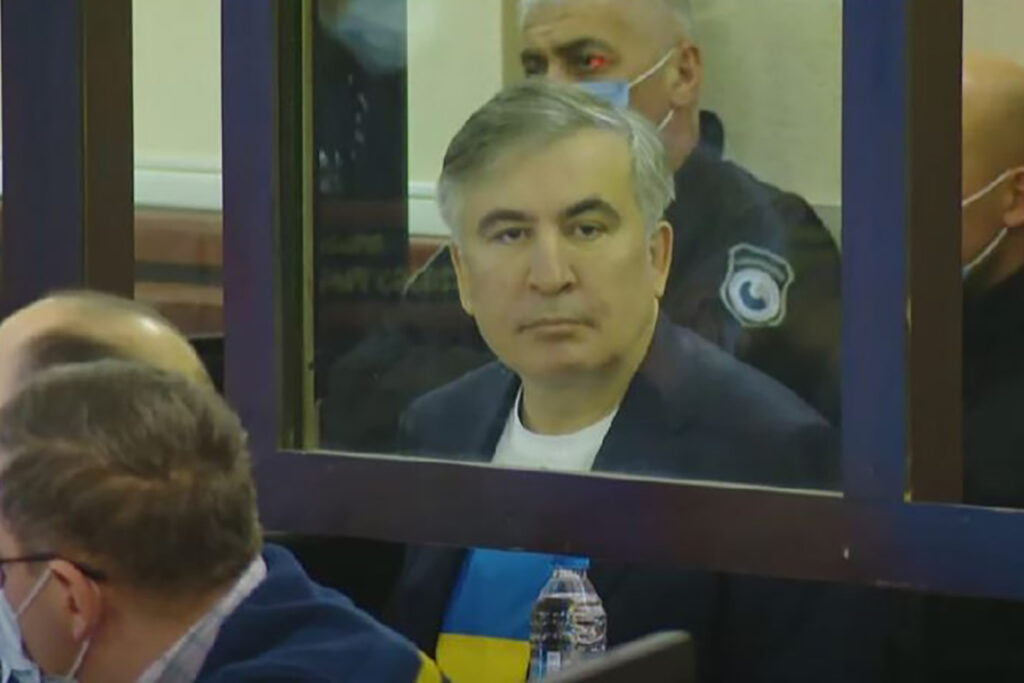Georgian authorities have moved former Georgian President Mikheil Saakashvili from prison to a civilian hospital in Tbilisi.
Saakashvili is currently serving a six-year prison sentence for abuse of power during his rule between 2004 and 2013, and is currently facing trial in three similar criminal cases.
[Read on OC Media: The 2007 crackdown — Saakashvili’s greatest mistake?]
Prior to his transfer on Thursday, Saakashvili demanded that his family members, personal doctor, and medics from anti-torture watchdog Empathy have permanent access to him.
On 6 May, Empathy warned that Saakashvili could die or face irreversible cognitive impairment if he developed Korsakoff Syndrome from his current condition, Wernicke's encephalopathy, a life-threatening neurological condition caused by thiamine deficiency.
The group advocated for the former president’s transfer to a multipurpose hospital where he could be ‘properly tested and treated’.
A team of health experts under Georgian Public Defender Nino Lomjaria monitoring Saakashvili’s conditions voiced a similar recommendation earlier and warned against ‘irreversible consequences’ to his condition.
On 27 April, the group confirmed that although Saakashvili was no longer on hunger strike, his health had continue to deteriorate due to protein starvation as a result of anorexia. They reported Saakashvili was also suffering from PTSD and depression.
Initially, ruling party leaders, most notably Georgian Dream chair Irakli Kobakhidze, mocked the alarming reports about his health.
‘He should take cottage cheese and an egg and everything will be over’, Kobakhidze chided on 2 May. ‘He was able to be President while having mental problems; I think he’ll manage being a prisoner now too’, he doubled down two days later.
In May, Saakashvili’s family members tried to ramp up a campaign calling for his treatment outside Georgia, but the announced nationwide protest movement struggled to gain momentum.
Initially, Justice Minister Rati Bregadze went on the offensive against the Public Defender by saying the Penitentiary Service ‘had some questions’ about the reports of doctors. On 10 May, the minister changed his tone and floated the idea of moving Saakashvili to the Tbilisi-based medical centre Vivamedi.
Following a 50-day hunger strike that he ended last November, Saakashvili announced a hunger strike again on 23 February, only to call it off 15 days later.




 12 May 2022
12 May 2022



